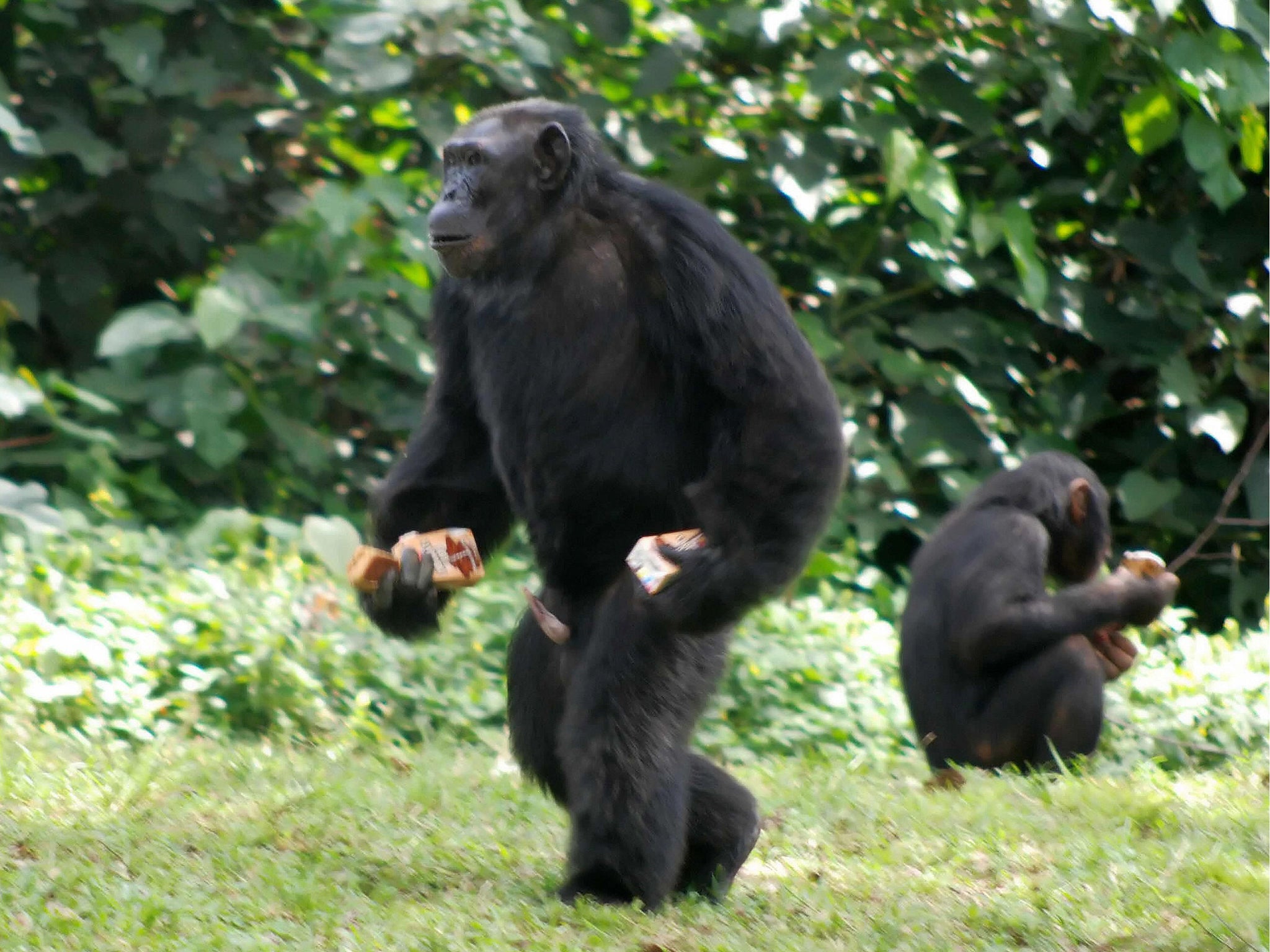Term 'alpha male' being used incorrectly, says expert who helped populate concept
'Alpha chimpanzees are impressive leaders, but the majority are also generous and kind to others because they know respect'

Your support helps us to tell the story
From reproductive rights to climate change to Big Tech, The Independent is on the ground when the story is developing. Whether it's investigating the financials of Elon Musk's pro-Trump PAC or producing our latest documentary, 'The A Word', which shines a light on the American women fighting for reproductive rights, we know how important it is to parse out the facts from the messaging.
At such a critical moment in US history, we need reporters on the ground. Your donation allows us to keep sending journalists to speak to both sides of the story.
The Independent is trusted by Americans across the entire political spectrum. And unlike many other quality news outlets, we choose not to lock Americans out of our reporting and analysis with paywalls. We believe quality journalism should be available to everyone, paid for by those who can afford it.
Your support makes all the difference.Frans de Waal believes it is time for us to stop insulting the chimps.
In a recent TED talk, the primatologist lamented the popular perception of “alpha males” as brutish, harsh leaders.
“I am actually partly responsible for the term alpha male because I wrote this book Chimpanzee Politics, which was recommended by Newt Gingrich to freshmen congressmen,” he said.
But his research in chimpanzees shows that leadership is more nuanced than that.
Alpha chimpanzees are impressive and intimidating leaders, but the majority of those who rise to the top are also generous and kind to others because they know respect will help them maintain their position at the top, Mr De Waal said.
“You should not call a bully an alpha male,” Mr De Waal said. “Someone who is big and strong and intimidates and insults everyone is not necessarily an alpha male.”
He says many chimpanzees know being kind and loving is a way to win over fans, whether by tickling babies, sharing food, or engaging in a kind of primate political campaign.
Other scientists who have studied the way power dynamics work in humans are uncovering similar truths.
Research suggests that we are more likely to perceive “physically formidable” men as better leaders, but that does not hold true if they are unpleasant. Still, power is a dangerous drug. It can chill your ability to empathise with others because it disengages the prefrontal cortex and deactivates the vagus nerve, which promotes compassion, gratitude, and appreciation.
There is a way to counteract these effects. If leaders feel a heightened sense of social responsibility, they can remain in tune with the needs and views of others.
It seems the chimps are on to the strategy.
“You don’t need to be the biggest and strongest male,” Mr De Waal said. “The smallest male, if he has the right friends and keeps them happy, or he has female support, he can be the alpha male.”
You can watch Mr De Waal’s full 15-minute talk on the “surprising science of alpha males” here:
Read more:
• This chart is easy to interpret: It says we're screwed
• How Uber became the world's most valuable startup
• These 4 things could trigger the next crisis in Europe
Read the original article on Business Insider UK. © 2016. Follow Business Insider UK on Twitter.
Join our commenting forum
Join thought-provoking conversations, follow other Independent readers and see their replies
Comments